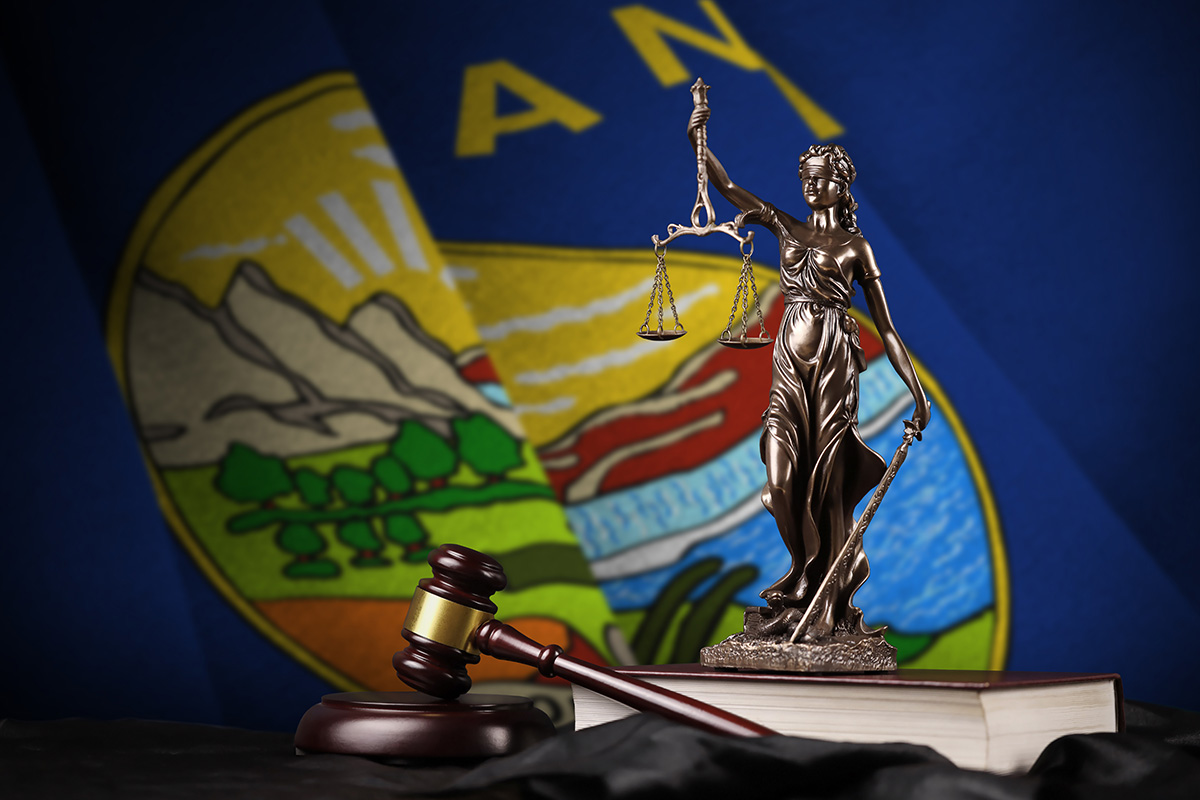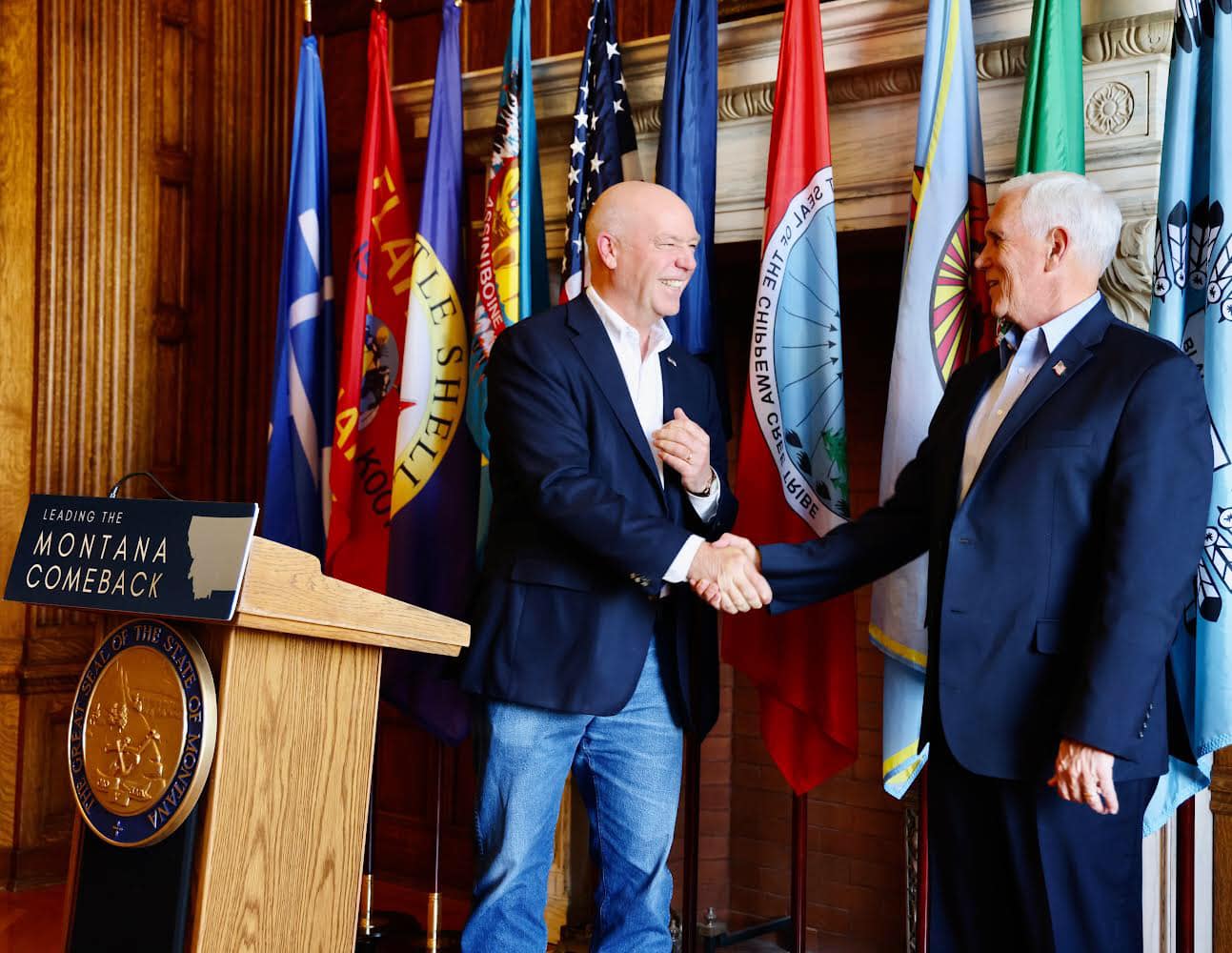Montana
Man sentenced for federal hate crime after attempting anti-LGBTQ mass shooting
John Russell Howald received 18-year prison sentence

A Montana man was sentenced to 18 years in prison for attempting to shoot victims with the intent to rid his town of LGBTQ residents, the Justice Department announced in a press release Wednesday.
After a four day trial in February, a jury convicted the man, John Russell Howald, of firing an AK-style rifle into the home of a woman who was known to be a lesbian, and “then walking further into town intending to target others he perceived to be lesbian, queer, and gay.”
Assistant Attorney General Kristen Clarke of the Justice Department’s Civil Rights Division said, “This defendant is being held accountable for his horrific attempted mass shooting against the LGBTQI+ community in a Montana town.”
The defendant “set out to rid the town of all LGBTQI+ members by killing them,” Clarke said. “He shot into the home of a lesbian resident, nearly killing her, with the hope of inspiring similar attacks around the country.”
Last week, the White House announced plans to better combat anti-LGBTQ violence through a community safety partnership administered by the Justice Department along with the U.S. Departments of Homeland Security and Health and Human Services.
White House Domestic Policy Advisor Neera Tanden told reporters the partnership will help LGBTQ community centers “prepare for the worst” — including “bomb threats, active shooters, and cybersecurity threats — while also protecting “healthcare providers who serve the community by working with doctors and medical associations.”
“This Pride month,” DOJ wrote in the press release about Howald, “we affirm our commitment to using the Matthew Shepard and James Byrd Hate Crimes Prevention Act to hold perpetrators of hate-fueled violence targeting the LGBTQI+ community accountable.”
“Motivated by hatred of the LGBTQI+ community and armed with multiple firearms and high-capacity magazines, this defendant sought to intimidate — even terrorize — an entire community by shooting into the victim’s home trying to kill her for no reason other than her sexual orientation, this defendant did something distinctly un-American by depriving her of her sense of safety, freedom and privacy all at once,” said Steven Dettelbach, director of the Bureau of Alcohol, Tobacco, Firearms and Explosives.
Montana
Montana Supreme Court blocks ban on healthcare for trans youth
‘Today’s ruling permits our clients to breathe a sigh of relief’

The Montana Supreme Court on Wednesday ruled that SB 99, a 2023 Montana law that bans life-saving gender-affirming care for transgender youth, is unconstitutional under the Montana Constitution’s privacy clause, which prohibits government intrusion into private medical decisions. This ruling will allow Montana communities and families to continue accessing medical treatments for transgender minors with gender dysphoria, the ACLU announced in a statement.
“I will never understand why my representatives are working to strip me of my rights and the rights of other transgender kids,” Phoebe Cross, a 17-year-old transgender boy told the ACLU. “Just living as a trans teenager is difficult enough, the last thing me and my peers need is to have our rights taken away.”
“Fortunately, the Montana Supreme Court understands the danger of the state interfering with critical healthcare,” said Lambda Legal Counsel Kell Olson. “Because Montana’s constitutional protections are even stronger than their federal counterparts, transgender youth in Montana can sleep easier tonight knowing that they can continue to thrive for now, without this looming threat hanging over their heads.”
“We are so thankful for this opportunity to protect trans youth, their families, and their medical providers from this baseless and dangerous law,” said Malita Picasso, Staff Attorney for the ACLU’s LGBTQ & HIV Project. “Every day that transgender Montanans are able to access this care is a critical and life-saving victory. We will never stop fighting until every transgender person has the care and support they need to thrive.”
“Today’s ruling permits our clients to breathe a sigh of relief,” said Akilah Deernose, Executive Director of the ACLU of Montana. “But the fight for trans rights is far from over. We will continue to push for the right of all Montanans, including those who are transgender, to be themselves and live their lives free of intrusive government interference.”
The Court found that the Plaintiffs were likely to succeed on the merits of their privacy claim, holding: “The Legislature did not make gender-affirming care unlawful. Nor did it make the treatments unlawful for all minors. Instead, it restricted a broad swath of medical treatments only when sought for a particular purpose. The record indicates that Provider Plaintiffs, or other medical professionals providing gender-affirming care, are recognized as competent in the medical community to provide that care.[T]he law puts governmental regulation in the mix of an individual’s fundamental right ‘to make medical judgments affecting her or his bodily integrity and health in partnership with a chosen health care provider.’
Two justices filed a concurrence arguing that the Court should also clarify that discrimination on the basis of transgender status is a form of sex discrimination prohibited by Montana’s Equal Protection Clause, the ACLU reported.

The American Civil Liberties Union of Montana. the law partners of Beck, Amsden, and Stalpes, and Mike Black, Esq., filed a lawsuit in state court today challenging the censure of state Rep. Zooey Zephyr.
The lawsuit alleges that recent actions undertaken by House leadership to silence Zephyr are a violation of her own First Amendment rights and the rights of her 11,000 constituents to representation in their state government.
“This effort by House leadership to silence me and my constituents is a disturbing and terrifying affront to democracy itself,” said Zephyr. “House leadership explicitly and directly targeted me and my district because I dared to give voice to the values and needs of transgender people like myself. By doing so, they’ve denied me my own rights under the Constitution and, more importantly, the rights of my constituents to just representation in their own government. The Montana State House is the people’s House, not Speaker Regier’s, and I’m determined to defend the right of the people to have their voices heard.”
“Suicide amongst transgender youth is not imaginary,” said Anna Wong, a resident of Montana House District 100 and a named party in the suit. “It is not a game and it is not a political foil. It is real. It is heartbreaking. And it is the responsibility of my representative to speak out against bills promoting it. I expected Rep. Zephyr to oppose, and her comments leading to expulsion from the House floor, which I have listened to, seem incredibly measured and muted compared to the severity of the situation.”
“Representative Zephyr was elected by the people of her district after running on the very principles she is now being punished for defending,” said Alex Rate, legal director of the ACLU of Montana. “In his craven pursuit to deny transgender youth and their families the health care they need, Speaker Regier has unfairly, unjustly, and unconstitutionally silenced those voters by silencing their representative. His actions are a direct threat to the bedrock principles that uphold our entire democracy, and we welcome the privilege of defending the people of Montana’s 100th House District from this desperate and autocratic effort to silence them.”
Between April 20 and April 24, 2023, House leadership repeatedly refused to recognize Zephyr, the state’s only openly trans lawmaker, in all official proceedings. Following April 24 protests from Zephyr’s constituents who demanded she be allowed to speak, Regier voted to formally censure Zephyr on April 26, physically excluding her from the grounds of the State Capitol and denying her the right to engage in debate on important matters of public policy. The censure effectively denies her constituents adequate representation in their own state government.
When Zephyr showed up to work at the state capitol on April 27, she was told she could not enter the House chamber. In addition, since the censure, four study bills awaiting votes in the committees on which Zephyr sits were either transferred to a different committee or elevated to the house floor, effectively eliminating all public committee hearings in which she was scheduled to participate.
The censure unfairly and unconstitutionally targeted Zephyr for voicing her objection to Senate Bill 99, a ban on the rights of transgender youth and their families to access gender-affirming health care since signed into law by Republican Gov. Greg Gianforte on April 28.
The ACLU, the ACLU of Montana, and Lambda Legal have promised to challenge SB 99 in court.
Montana
Mont. governor signs gender-affirming care ban for minors
Greg Gianforte’s child identifies as nonbinary


By Mara Silvers | Republican Montana Gov. Greg Gianforte on Friday signed a ban on gender-affirming medical treatments for transgender minors, making the state one of at least 11 that have passed similar laws this year.
Senate Bill 99, sponsored by Sen. John Fuller (R-Whitefish), is slated to take effect Oct. 1. If enacted, the new law will prohibit health care providers from providing puberty blockers, cross-sex hormones, and a variety of surgeries to minors for the purposes of treating gender dysphoria. The bill makes exceptions for people receiving any of the listed services for the purposes of treating specific disorders of sex development.
The policy is part of a nationwide Republican agenda to restrict transition-related health care for trans, nonbinary and two spirit people, most often applied specifically to minors. Montana’s bill consistently passed committee and floor votes along party lines. In a statement about the bill signing, Fuller said he is grateful for the bill signing and that the governor is “supporting the health and safety of Montana’s children.”
Opponents of the legislation, including LGBTQ advocacy coalitions, civil rights groups and medical associations, criticized the governor’s decision Friday. The American Civil Liberties Union of Montana and other legal groups had previously pledged to try to block SB 99 in the courts, calling it “anti-science and discriminatory fear-mongering.” The organization doubled down on that stance in response to Gianforte’s decision.
“See you in court,” ACLU of Montana staff attorney Akilah Deernose said about SB 99 in a text message to MTFP Friday.
Republicans in Montana, conservative advocacy groups and members of the public who supported SB 99 repeatedly cast it as a necessary restriction on experimental and risky gender-affirming care. Those assertions have been refuted by major medical associations in Montana and nationwide that endorse the targeted medical services as part of a range of evidence-based best practices for supporting people whose gender identity does not match the sex they were assigned at birth.
In a statement last month, the World Professional Association for Transgender Health and its U.S. affiliate, the leading organization that sets industry standards for care, said the wave of medical restrictions advancing around the country is geared toward “eliminating transgender persons on a micro and macro scale.”
“If and when these laws are enacted, they will undoubtedly lead to further harm for transgender and gender diverse people seeking this lifesaving care; these laws offer no protection in any way, shape or form,” said U.S. Professional Association for Transgender Health Care President Dr. Maddie Deutsch.
Montana medical providers opposed to SB 99 stressed Friday that the treatments listed in the bill will remain legal until October, and possibly later if the law is blocked in court.
“My bottom line to families is that this care remains legal,” said Dr. Kathryn Lowe, a Bozeman pediatrician and member of the Montana Chapter of the American Academy of Pediatrics. “To all the families who are panicking, who are moving, who are listing their houses to sell … we have great hope that [SB 99] will never take effect.”
Gianforte’s decision came during a week of protest and upheaval at the Montana Legislature related to SB 99 and other bills affecting trans people. Montana Free Press reported Wednesday that Gianforte’s second-oldest child, David Gianforte, identifies as nonbinary and has lobbied their father to veto the legislation. In late March, according to a statement shared with MTFP, David told their father that SB 99 and other bills were “immoral, unjust, and frankly a violation of human rights.”

Rep. Zooey Zephyr (D-Missoula), and one of the state’s first openly trans lawmakers, brought national focus to Montana after saying last week that lawmakers who voted for Gianforte’s version of the legislation would see “blood on their hands,” alluding to increased rates of suicide among trans youth. She was then blocked from speaking on the House floor, leading to protests and arrests in the House chamber on Monday and subsequent punishment by House Republicans for her actions during the demonstration.
Zephyr spoke out against the new law Friday, saying she had hoped the governor would listen to David Gianforte’s input and realize the harm the bill will do. Despite the governor’s decision, Zephyr said, she has hope that the law will fail to pass legal muster.
“These bills are as cruel as they are unconstitutional,” she said. “And I have no doubt that they will go down in court. But at this moment we have to care for our communities given that the government has failed to do so.”
Other trans organizers echoed that sentiment Friday in response to Gianforte’s decision.
“There’s so much support in our communities for trans people and trans youth. And I feel very confident that the people who are in this fight are in it for the long haul and will not stop until Montana is the type of place where all of us can live the lives that we want to,” said Izzy Milch, an organizer with the progressive advocacy group Forward Montana. “The most important thing there is that trans people have been in Montana forever and will be in Montana forever.”
***********************************************************************************

Mara Silvers
Mara writes about health and human services stories happening in local communities, the Montana statehouse and the court system. She also produces the Shared State podcast in collaboration with MTPR and YPR. Before joining Montana Free Press, Mara worked in podcast and radio production at Slate and WNYC. She was born and raised in Helena, Mont., and graduated from Seattle University in 2016. More by Mara Silvers
**********************
The preceding piece was previously published by Montana Free Press and is republished with permission.
SUPPORT A FREE AND INDEPENDENT PRESS
Unbiased, unflinching journalism is critical to our democracy. When you donate to Montana Free Press, you are helping build a newsroom that serves the people of Montana, not advertisers or special interests. (Link)
-

 U.S. Supreme Court2 days ago
U.S. Supreme Court2 days agoSupreme Court to consider bans on trans athletes in school sports
-

 Out & About2 days ago
Out & About2 days agoCelebrate the Fourth of July the gay way!
-

 Virginia2 days ago
Virginia2 days agoVa. court allows conversion therapy despite law banning it
-

 India5 days ago
India5 days agoAnaya Bangar challenges ban on trans women in female cricket teams












